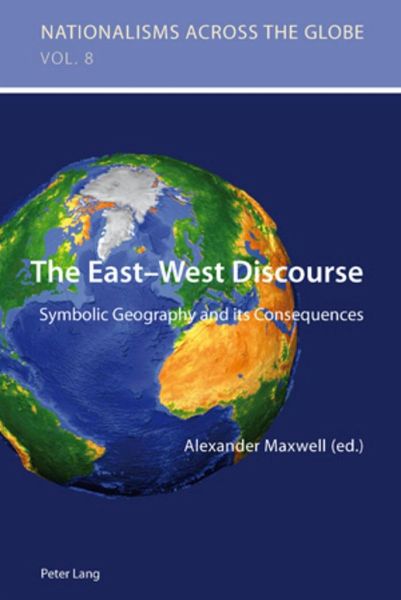
The East-West Discourse
Symbolic Geography and its Consequences
Herausgegeben: Maxwell, Alexander
Versandkostenfrei!
Versandfertig in 6-10 Tagen
73,25 €
inkl. MwSt.

PAYBACK Punkte
0 °P sammeln!
Political actors from many different countries locate their home country as a unique transition point between "the East" and "the West". The terms "east" and "west" have become highly symbolic, yet also have a relative meaning, since every place is east of somewhere, and west of somewhere else. What gives this banal cliché such irresistible attraction? How does East-West symbolism interact with other symbolic geographies? This book examines East-West rhetoric in several different historical contexts, seeking to problematize its implicit assumptions and analyse its consequences, particularly i...
Political actors from many different countries locate their home country as a unique transition point between "the East" and "the West". The terms "east" and "west" have become highly symbolic, yet also have a relative meaning, since every place is east of somewhere, and west of somewhere else. What gives this banal cliché such irresistible attraction? How does East-West symbolism interact with other symbolic geographies? This book examines East-West rhetoric in several different historical contexts, seeking to problematize its implicit assumptions and analyse its consequences, particularly in parts of Europe where political actors conflate local geography with symbolic "Easts" and "Wests".
The various contributions to the book provide an overview of East-West discourses in scholarly writing; trace the medieval origins of European East-West symbolism; and discuss East-West discourses in nineteenth-century Germany, interwar Poland, Yugoslavia and Transylvania, twentieth-centuryFinland, Turkey in the late Cold War and post-Communist Belarus.
The various contributions to the book provide an overview of East-West discourses in scholarly writing; trace the medieval origins of European East-West symbolism; and discuss East-West discourses in nineteenth-century Germany, interwar Poland, Yugoslavia and Transylvania, twentieth-centuryFinland, Turkey in the late Cold War and post-Communist Belarus.














